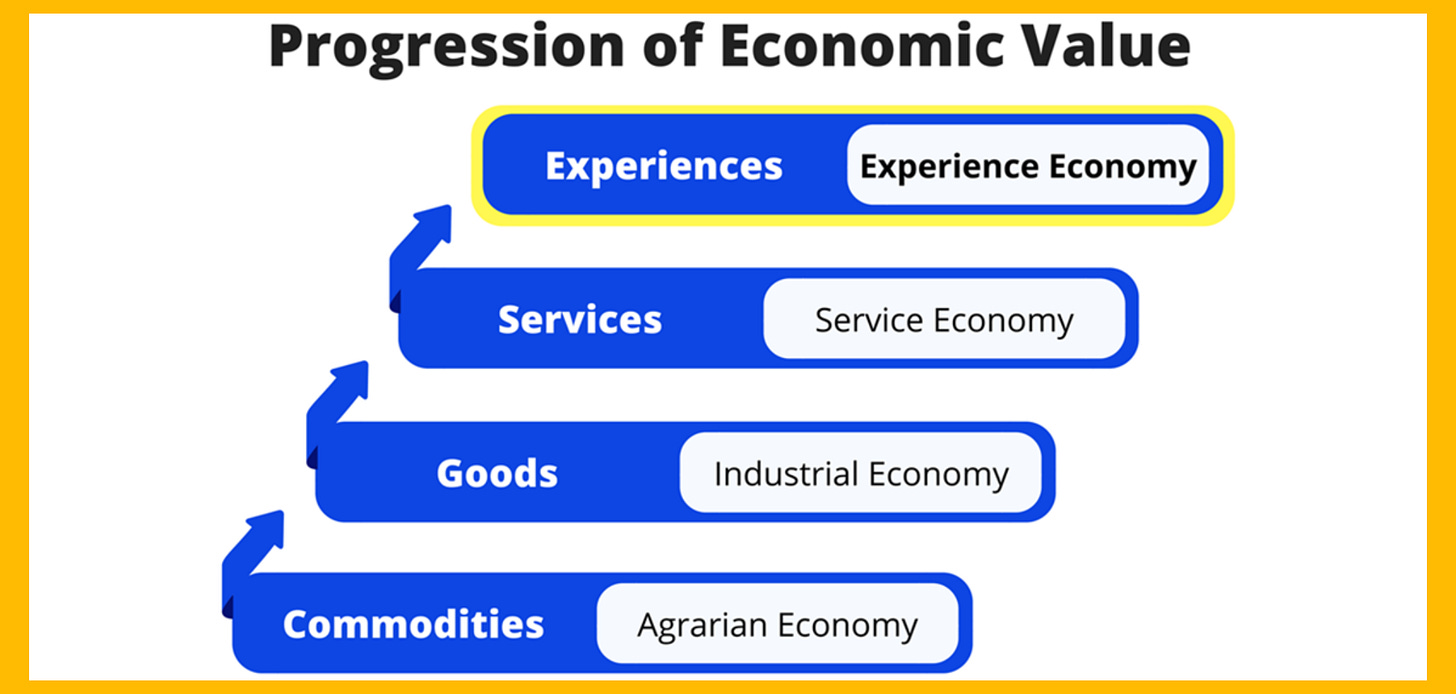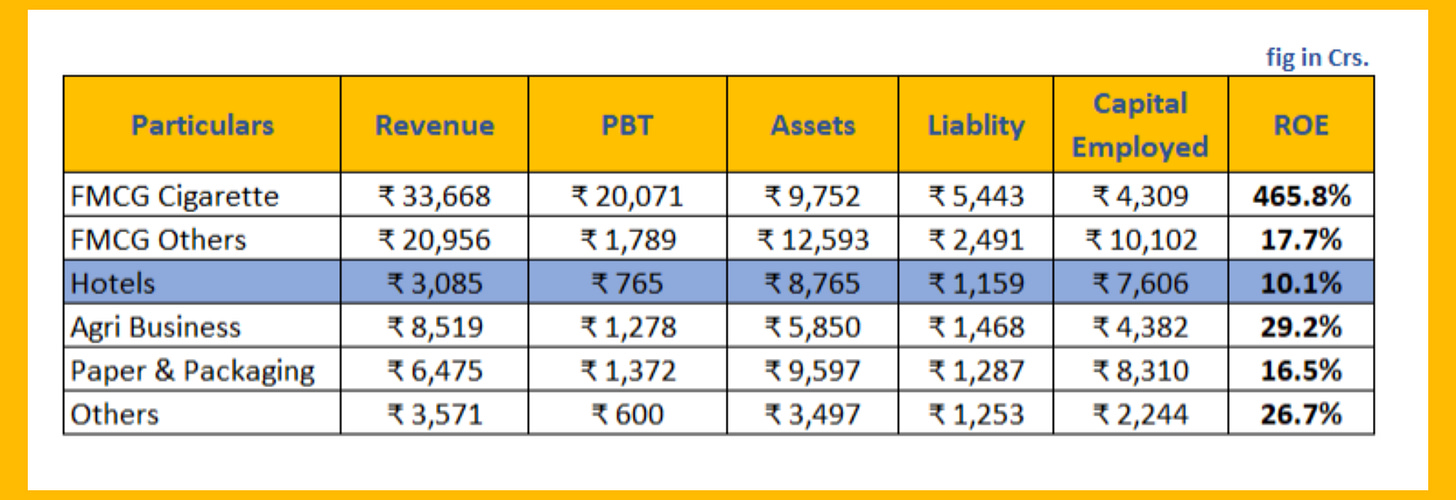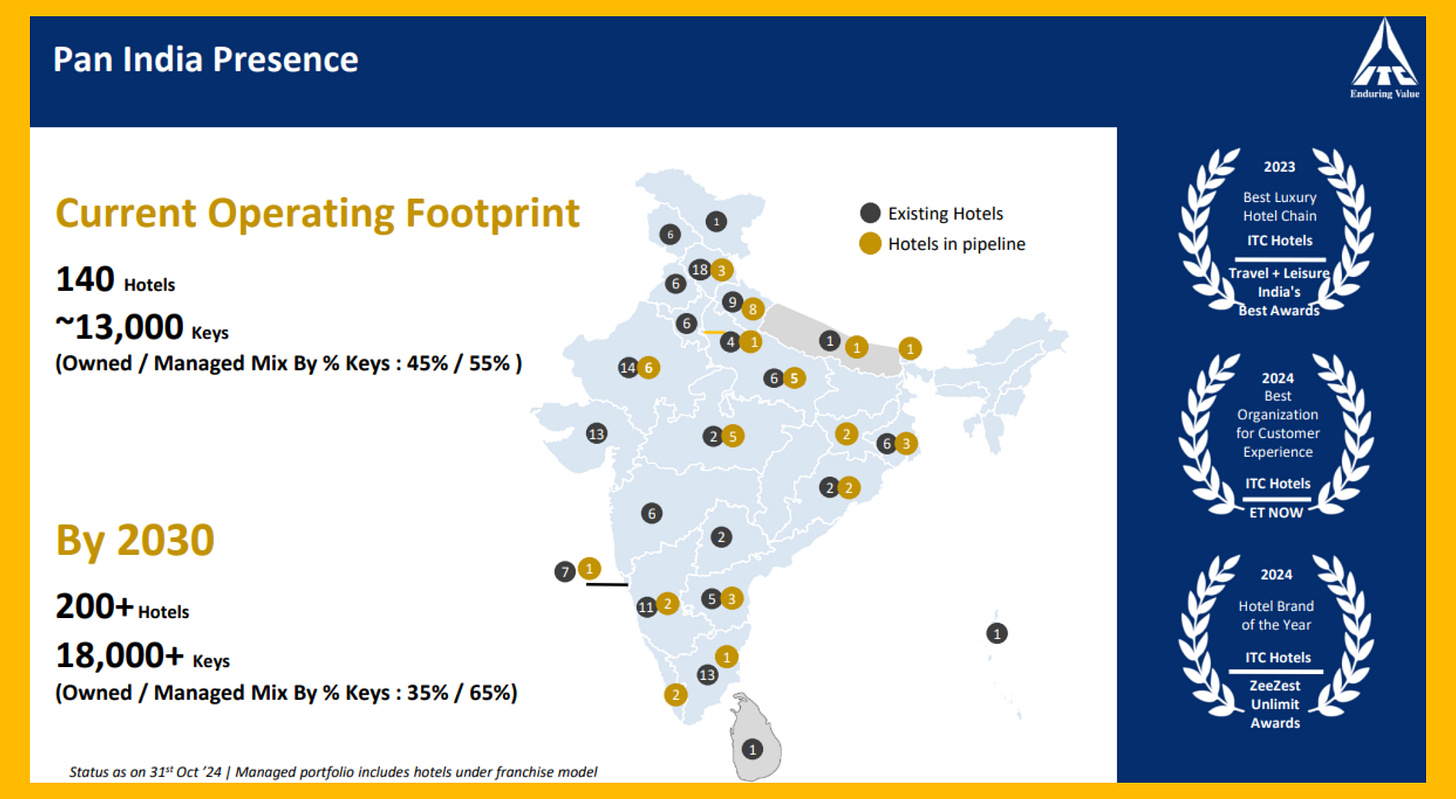Why do we buy Starbucks Despite Being Expensive?
You must have bought a huge tub of popcorn for 400-500Rs. Even though you knew they were overcharging, you still bought it, right? Well, it’s not just about the popcorn or coffee; it’s about how a Movie theatre or Starbucks makes you feel with its services, ambience, and overall vibe.
All of these essentials make Starbucks an example of the “Experience Economy”.
What is the Experience Economy?
The experience economy is about businesses creating memorable experiences for customers instead of just selling products or services; it focuses on the customer’s feelings and experience.
You need good vibes, and good music to work or chill - Starbucks is here!
If you are hungry or just wanna munch while watching a movie - Here goes a 500Rs. Popcorn.
or a tea date with your parents at Hotel Taj, Mumbai—the bill for three would be in the thousands.
They are selling experience. It was never about Coffee, Popcorn or Tea.
The concept of “Experience Economy” was made popular through a book - The Experience Economy by Joesph Pine II.
He shared that businesses could beat competitors by offering unique, engaging experiences rather than going into a pricing war.
Joesph observed that people no longer just wanted to buy products—they wanted something more: an experience they could connect with.
(Those you went, knew how wholesome experience it was when you visited an IKEA store)

Fast-forward to today, and this idea is more relevant than ever. Businesses across industries are adopting the experience economy to attract new customers and keep existing ones loyal.
For instance, think of Zomaland, the event series by Zomato.
From a financial perspective, the experience economy is a smart move for businesses.
Creating experiences allows companies to charge a premium, making customers willing to pay extra for the added value.
This approach helps businesses increase revenue, build brand loyalty, and differentiate themselves in competitive markets.
My objective here is not to discourage you from spending on these experiences but to convey that you are paying for an experience at Starbucks that you can’t get at roadside tapri. (Though I agree the Tapri’s coffee tastes way better :))
MEME OF THE WEEK:

Market Kya Keh Raha Hai, Sir?
ITC Limited, which is one of India’s largest and most diversified conglomerates evolved into a “jack of all trades” with a presence in multiple industries, including:
FMCG
Tobacco
Luxury Hotels
Paper & Packaging
Agri-Business
Recently, ITC has been making headlines for a significant strategic move. In August 2023, the company demerged its hotel business into a separate standalone entity. (hum dono hain alag alag - Value unlock hoyega!)
This move received formal approval from the National Company Law Tribunal (NCLT) in October 2024, and the demerger is tentatively scheduled to take effect on January 1, 2025.
The hotel business, operating under ITC Hotels, is a significant player in the hospitality sector. It is the second-largest hotel group in India, following the Tata Group’s Indian Hotels.
Its six brands—ITC Hotels, Welcomhotel, Mementos, Storii, WelcomHeritage, and Fortune Hotels—cater to a wide range of travellers, from those seeking luxury to those drawn to heritage stays.
With over 140 properties and 13,000 rooms, ITC Hotels has achieved steady growth by balancing owned and managed properties.
But the big question remains: Why is ITC making its hotel business a separate company when it’s already doing so well?
Why is ITC Demerging Its Hotels Segment?
To understand this decision, it is important to look at a key financial metric: Return on Equity (ROE). ROE shows how effectively a company turns investments into profits.

For ITC, the overall ROE is impressive—39.3% in 2024. But when you look closer, not all its businesses perform the same.
The hotel segment, for example, has an ROE of only 10.1%. That’s much lower than ITC’s other businesses, dragging down the company’s overall performance.
If the hotel business weren’t part of ITC, the ROE would jump from 39.3% to 42.9%.
This means that the people who are willing to invest in ITC's cash cows also have to be part of its low-performing hotel business.
Here’s another way to see it: ITC’s hotels use a lot of money—about 25% of the capital expenditure—but they contribute only 4.5% of the company’s revenue.
In comparison, ITC’s cigarette business uses less money (15.7% of capex) and gives back almost 47.5% of the revenue.
So finally,
In June 2024, ITC’s shareholders voted to separate the hotel business. Almost everyone agreed—99.6% of votes were in favour of demerger.
This change will allow ITC to focus on its stronger businesses and give the hotel segment a chance to grow, which is a win-win for both sides!
Understanding the Operating Model of ITC’s Hotel Business
ITC operates through two models, that are:
Owning Hotel: In this model, ITC does everything—it builds the hotel, runs it, and owns it. But the catch is: that this approach needs a lot of money to keep things going. It can also lead to delays. For example, ITC started planning Welcome Hotels Lanka back in 2012, calling it a "strategic development." However, after many delays, it finally opened in 2024.
Asset Right Model: In this model, ITC doesn’t own the hotels but partners with property owners to manage them under the ITC brand. This approach keeps costs low and allows ITC to focus on efficient operations. In the past 24 months, ITC has opened 25 hotels under its brand portfolio, with 24 of them being as per the asset right model.

Post Demerger Plans
What’s in for shareholders?: For every 10 shares of ITC Ltd., shareholders will receive 1 share of ITC Hotels.
After the demerger, ITC Hotels will have no debt and total assets worth ₹11,000 crore, including ₹1,000–1,500 crore in cash.
This solid financial foundation will help the company grow and expand in the future.
Future Growth Plans: ITC Hotels aims to expand quickly by increasing its inventory to 18,000 rooms and growing to 200 hotels in the next 4–5 years.
The company has been consistently opening 1 hotel per month and plans to keep up this momentum for the next two years.
ITC Strengthens Its Stakes in Oberoi and Leela Hotels
It raised its stake in the Oberoi Group to 16.13% (from 13.69%) and in the Leela Group to 8.11% (from 7.58%) through its subsidiary, Russell Credit Ltd.
The ITC Board approved this plan earlier, on October 24. This move gives ITC more control over these hotel groups as part of the demerger of its hotel business.
What More Caught My Eye:
Ambani and Adani drop from Bloomberg's $100 billion club
Sovereign Gold Bond, might get discontinued soon
Capital Markets thematic report
Airbnb from broke to billionaire
YouTube is Saregama’s superpower
Recommendations:
For this week, my recommendation is Believe in Yourself by Joseph Murphy. This book will help you tap into your subconscious mind, overcome mental barriers, and build unshakable confidence.
It is a simple non-fiction read that helps your belief system and takes control of your thoughts; it is a must-read for anyone ready to unlock their mind’s potential and create the life they desire!
Thank you for reading this week's newsletter!
I would appreciate hearing your thoughts in the comments section.
Please feel free to like, share, and restack—your support encourages me to provide valuable insights.
Song of the Week:
This is Parth Verma,
Signing off.







The content was immense depth information thanks you sir... FINDING PATH WITH " PARTH"
As always, great piece of knowledge. Thanks a lot sir!